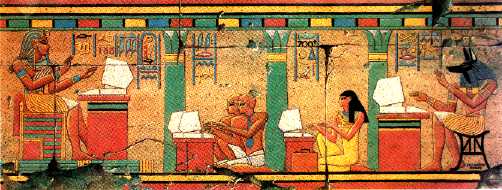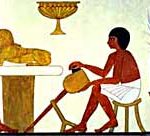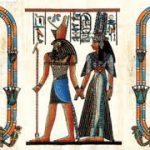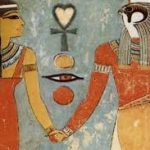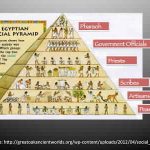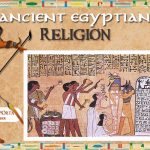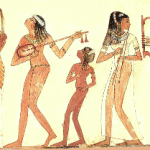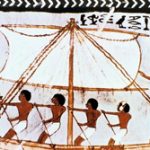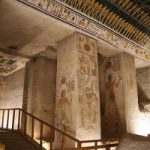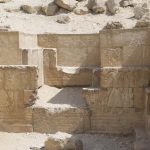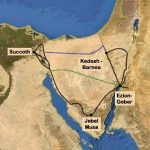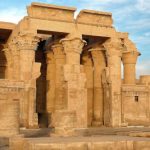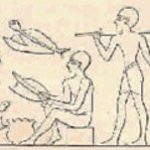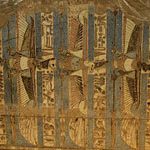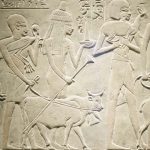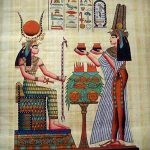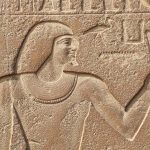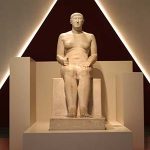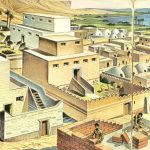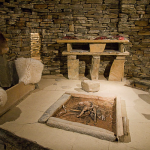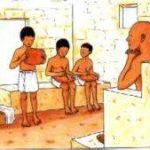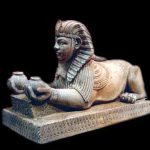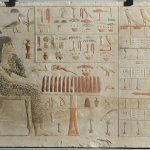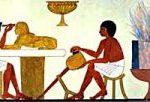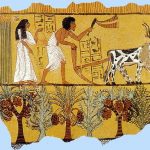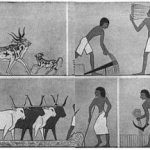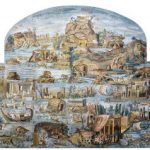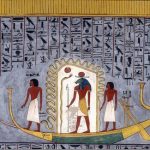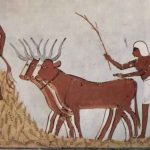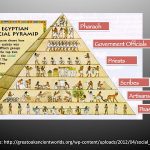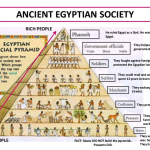A diverse range of subjects was taught in ancient Egyptian schools. The focus for younger students was usually confined to reading, writing, and basic mathematics. The range of topics expanded as students progressed through to system to include such subjects such as mathematics, history, geography, medicine, ethics, science, morality and music.
After finishing their education, most students followed the professions of their fathers. However, it was also not unusual for students to choose a specialised educational path. Egypt’s higher education system was focused on producing skilled practitioners and also included the children of Egypt’s nobility and royal office holders.
Youth Apprenticeships
At the age of 14, the children of lower and middle-class parents finished their formal education and began working as apprentices to their fathers. Typical occupations operating an apprentice system included farming, carpentry, stone masonry, leather and fabric dying, metal and leather working and jewellers. Craftsmen expected their sons to become apprentices to their trade. Upward mobility in ancient Egypt was rare.

Young girls remained in their households with their mothers. They were taught how to run a household, cooking, baking, child rearing and basic medical skills including the use of oils and herbs. Girls of higher social status were instructed on entertaining high-status visitors and overseeing household servants and slaves.
So, like the boys, girls were trained in skills that were deemed to be suitable for their social class and likely responsibilities. As career choices for women were severely restricted vocational apprenticeships were mostly limited to training as a baker, weaver, entertainer, or dancer.
Girls of high birth sometimes received additional education. Depending on their father’s place in society, a high-born girl could be expected to assist with running the family business while the father was away. Noble-born women occasionally received additional formal education to enable them to read, write and cipher.
A knowledge of the arts, history and politics, were features of their education as noble women needed to be sufficiently educated to make them an acceptable wife for an upper-class husband as well as being able to manage the family business.
Scribes as a Profession
One of the few career choices proving upward mobility in ancient Egypt was to successfully apprentice to a scribe. Girls were usually banned from becoming scribes, although exceptions existed.

Surviving documents describe a few female doctors in ancient Egypt and those women received training as scribes to enable them to read medical texts and treatises.
A scribe’s extended education included practising writing hundreds of hieroglyphs and symbols that made up the Egyptian language. Scribes practised writing on wood, pottery and stone to ensure their words were accurate and legible. Beatings were common punishment for substandard penmanship. Papyrus; it was scarce and expensive and wasn’t used for practice exercises.
Religious Education
Religious education was taught with other subjects in ancient Egypt. Ancient Egyptians were polytheists. They worshipped many gods rather than one God. As all ancient Egyptians worshipped the same gods and goddesses, religious education was fairly uniform. Children were taught to honour and respect the gods from a young age and disrespect or disobedience resulted in harsh punishments.
The Prince’s School
The Prince’s School educated the sons of the king and the nobility or high officials. No girls were allowed to attend it. Promising young boys were also allowed to attend and this was considered a great honour. It was also one of the few ways for a pupil from the lower class to rise in society.

Younger students received training in writing and maths. Older students received training in reading, writing, mathematics and history. Mathematics was based on a decimal system and included arithmetic, geometry, science, astronomy, music and medicine.
Ancient Egypt’s Concept Of Wisdom
For the ancient Egyptians wisdom came from obeying the natural laws that governed their day-to-day lives. Wisdom was gleaned from abiding by the concepts of truth, integrity and justice. Hence, Egyptian students were taught these concepts so they could attain true wisdom.
Philosophy was not seen as a separate educational stream in ancient Egypt. Philosophy was taught in conjunction with moral and religious instruction. All students were expected to both understand and practice philosophical concepts.
Reflecting on the Past
Ancient Egypt’s rich cultural and religious life was based on an education system that while delivering a broad syllabus to its male students was primarily designed to perpetuate its conservative and inelastic social structure.

